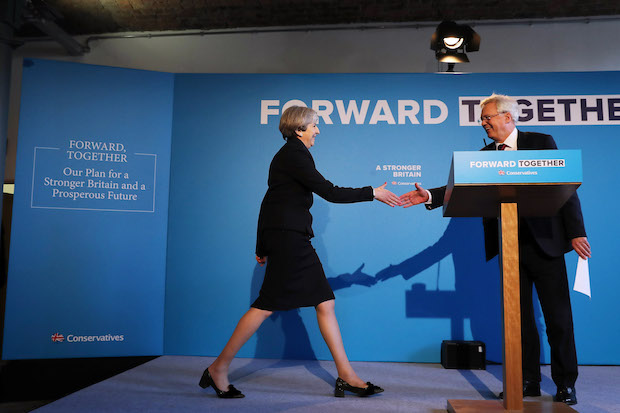It was only a year ago that ‘Brexit means Brexit, and we’re going to make a success of it’ seemed like a reasonably fresh phrase which could actually mean something. Now, we don’t hear so much about making a success of the thing as we do about getting through it in one piece, hopefully with Theresa May’s Cabinet agreeing on a few things along the way too. The Cabinet is slowly starting to realise that a little pragmatism on both sides wouldn’t hurt as the government burrows into the detailed negotiations with the European Union.
A bit of agreement on transitional periods, if not immigration, is handy, but this is just the Cabinet we’re talking about, not other EU countries. For instance, the Irish government has pronounced Theresa May’s solution for the Irish border as unworkable, which has in turn upset the DUP as the alternative proposal from Dublin would mean a sea border between Britain and Ireland. Perhaps May could rely on Labour to support this instead, but this is such a serious matter for the DUP that it might threaten their support on every issue, not just Brexit.
What is Labour’s position on Brexit anyway? It seems almost unfair to expect the Opposition to have a coherent stance when the Cabinet hasn’t been required to come up with one until the past week. But our motto here is firm but unfair, and there’s nothing more unfair than trying to understand what Jeremy Corbyn’s party thinks about leaving the European Union, so here’s Coffee House’s attempt to do it so readers don’t have to:
Labour’s official position, as stated in its manifesto: ‘We will scrap the Conservatives’ Brexit White Paper and replace it with fresh negotiating priorities that have a strong emphasis on retaining the benefits of the Single Market and the Customs Union – which are essential for maintaining industries, jobs and businesses in Britain. Labour will always put jobs and the economy first.’
Barry Gardiner, Shadow International Trade Secretary: remaining in the single market and customs union after leaving would be a ‘disaster’ and leave Britain vulnerable to ‘asymmetric’ trade deals.
Jeremy Corbyn’s position, 25 July 2017: ‘We need to be flexible in our approach and not sweep options off the table… We want to see a new partnership with the EU that maintains the benefits of both the single market and the customs union.’
John McDonnell echoed this, saying ‘Our objective is tariff-free access to the market’.
What was predictable about the Barry Gardiner row was that Labour centrists, mostly those who rebelled to support Chuka Umunna’s amendment on single market membership, were furious with the party’s frontbench. Plus ça change. But those who had been more sympathetic to the leadership, such as Heidi Alexander, who was Shadow Health Secretary under Corbyn between 2015 and 2016, also attacked Gardiner. Fair enough: Brexit is a big deal, and the party is also trying to work out how to appeal to the large groups of remain and leave voters within its electorate. But the party’s own leadership also distanced itself from Gardiner, with sources expressing frustration in private about his ‘ego’. Gardiner has been a fervent Corbyn ally, but really hasn’t helped his leader on this matter.
Of course, a lot of these divisions in all parties aren’t just about the principles at stake but the continuing splits between ministers and shadow ministers, parties and their leaderships on what voters actually want from Brexit. As James and Ed discuss on this week’s podcast, the lack of clarity on the detail from the referendum result might lead to some calling for a second referendum to approve the final deal – but of course, that would lead to even more splits, and not just in Westminster, but in a country fatigued from endless voting.







Comments